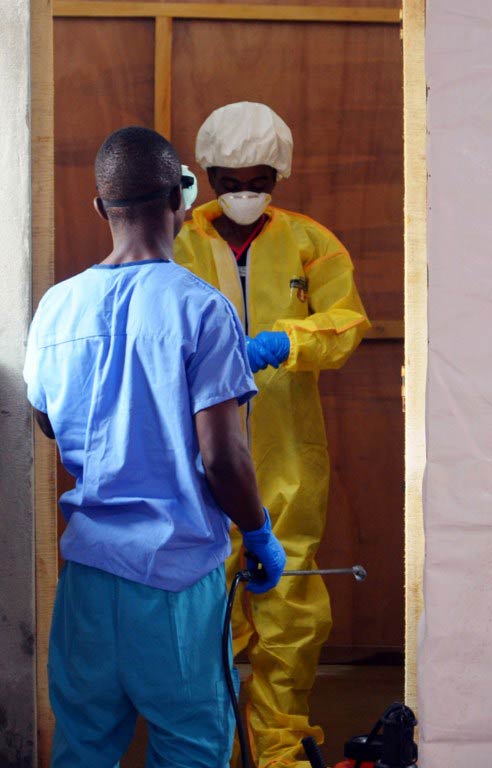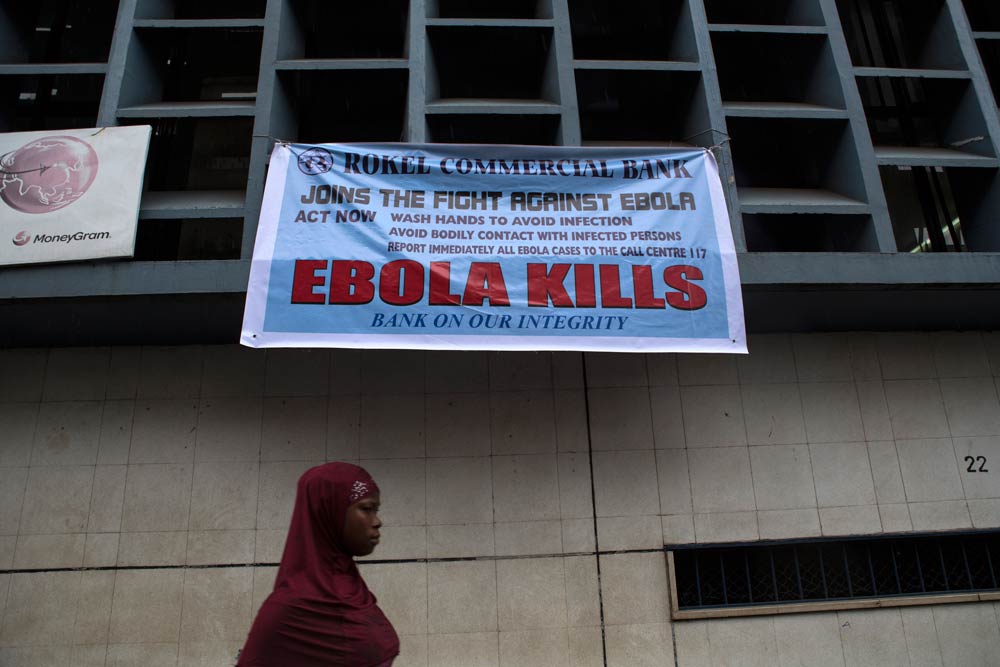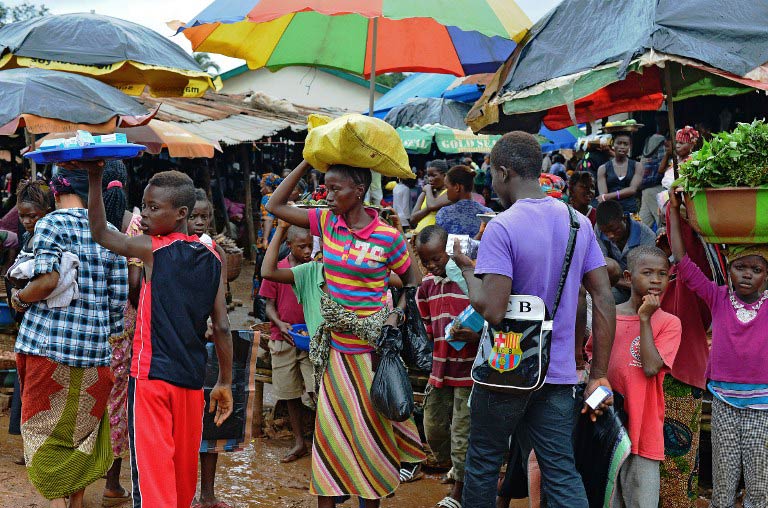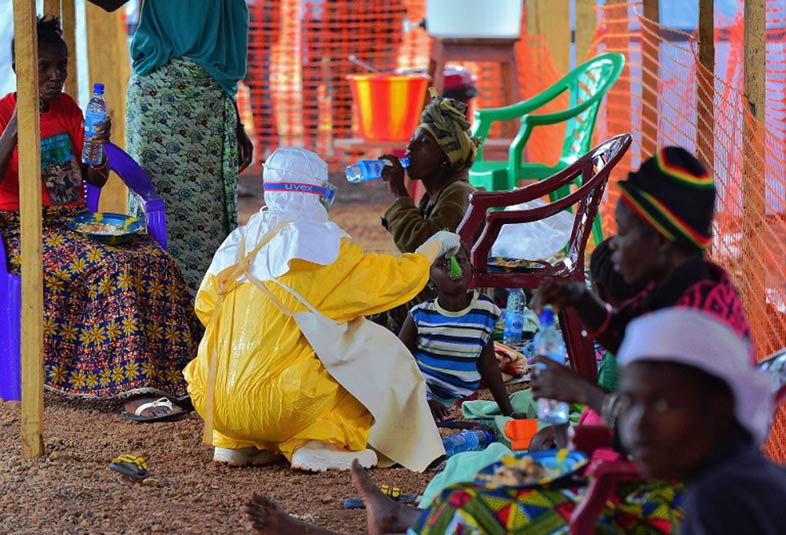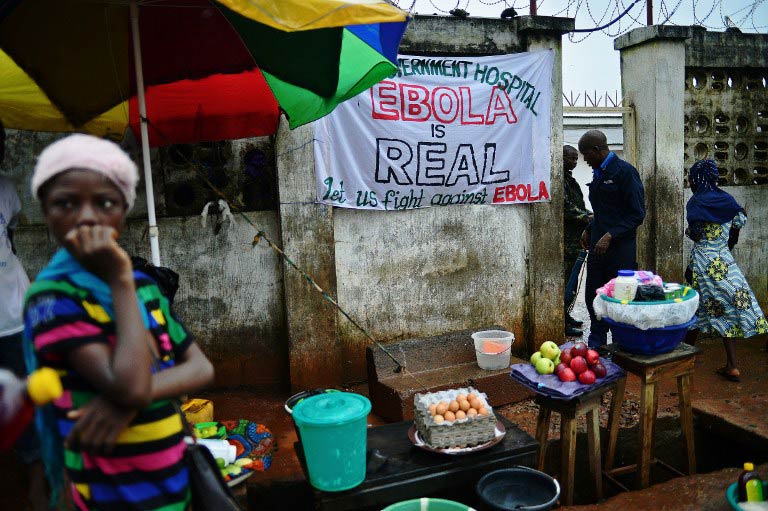
We twist and turn on the dirt road, the tyres kicking up clods of mud. It has rained intermittently the whole afternoon and the road becomes increasingly difficult to negotiate, requiring the full 4-wheel drive.
The other landcruiser gets stuck briefly, stubbornly revving to keep up behind us. We toss and tumble around on the back seats as the land cruiser dives into another rut. “Welcome to ‘Kah-llun’” the driver announces.
This stretch of the day-long journey to the base at Kailahun started with wishes of “Bon voyage” hailed across the two-way radio in Bo at lunchtime. To get to Bo, we’d left Freetown at sunrise in a minibus, packed to the brim with luggage and mission staff.
There were half a dozen police check points between Freetown and Bo: each stop requiring some unpacking of the car in order to disembark, and then lining up to have our temperature taken, and occasionally having to wash our hands in chlorinated water.
Staff in white coats pointed the thermometer at our foreheads, and read the result out loud, while camouflage-clad troops looked on. “I’m from West Africa, you from South Africa”, one of them laughed, “Yes, we are all Africans!” we agreed, me thinking that a World Cup would have been more likely to bring us together than an epidemic tearing through the country.
But we had it easy. With special passes around our necks, and a Ministry of Health placard on the front window of the bus, proclaiming “ALLOW TO PASS – EBOLA RESPONSE”, we sped to the front of the one kilometre queue, while a line of trucks, cars and motor bikes, with Sierra Leoneans –- mothers, children and men of all ages –- sitting in the heat on the road, waited to be allowed through.
The government has implemented quarantined zones, to be adhered to for 21 days after the last reported case in each zone. It was evident that while usefully restricting movement, these measures were causing havoc in people’s lives, and the transport of supplies across the country. For me, this was the first indication that the posters on houses and trees might be true, that “EBOLA IS REAL”.
We stopped on the outskirts of Bo to take a tour of the treatment centre. Built in only five weeks, the centre can take in 100 patients, and even has a helipad. In the next phase an onsite laboratory will be installed to speed up the time between a blood sample being taken and the result being available.
Few sites have onsite laboratories, and specimens are taken by road for testing, often leading to people who test positive for Ebola mixing with those who test negative for several hours in the waiting area of the centre.
Walking up to the centre, one is filled with awe: the white tent-like structures look like an impressive utopian city. But at the same time, they invoke the fear and intrigue felt by anyone who is drawn to the television news broadcasts of the yellow hazmat suits, masks and goggles. From a distance and for the first time, we catch a glimpse of these suits for real: people unloading a stretcher from the back of a vehicle … “Was that a body?”
Inside, the centre is carefully organised into high and low risk zones. Hand washing points, consisting of elevated plastic vats of chlorinated water, with a bucket underneath, are strategically placed throughout, and the paths through the zones are cordoned off with orange barrier fences and a carefully planned open water drainage system.
We see national staff putting on their Personal Protective Equipment, one layer after the next, as we stand sweating in our single layer of scrubs and gumboots.
Where are the sick and dying? One patient emerges from the high risk zone and takes a seat behind the orange barrier fencing. A few metres away, behind another orange fence, a health promoter shouts across to him, “Hello, Mr X. Since you no longer have symptoms, you are getting better. We now need to wait to see what your viral load result is, and maybe you can go home.”
We crane our necks to get a glimpse of the sick in the high risk tent. While the staff in the hazmat suits move slowly and carefully around the ward, partitions allow the patients their privacy, screening off our inquisitive eyes and those who may well be dying next to them.
We hit the road to Kenema, enroute to Kailahun. In Kenema, the market place teams with people in close proximity, buying and selling goods and food. Where is the Ebola? Where is the fear? I wonder why the fear of infection is not keeping more people away from the town centre.
But I wonder no more as we approach a busy traffic circle: a man lies prostrate in the road, emaciated and his face contorted in pain. With one arm he tries to shade his eyes. Far gone, too far gone. We shake our heads and drive on. We look back. No one will approach him: he will most likely die alone. Yes, Ebola, it’s real.
Kathryn Stinson has a PhD in Public Health and works as an epidemiologist at the University of Cape Town. She has three children, two Great Danes and one very supportive husband. She is volunteering in Sierra Leone for an NGO and writes in her personal capacity.
This article was first published on GroundUp.
